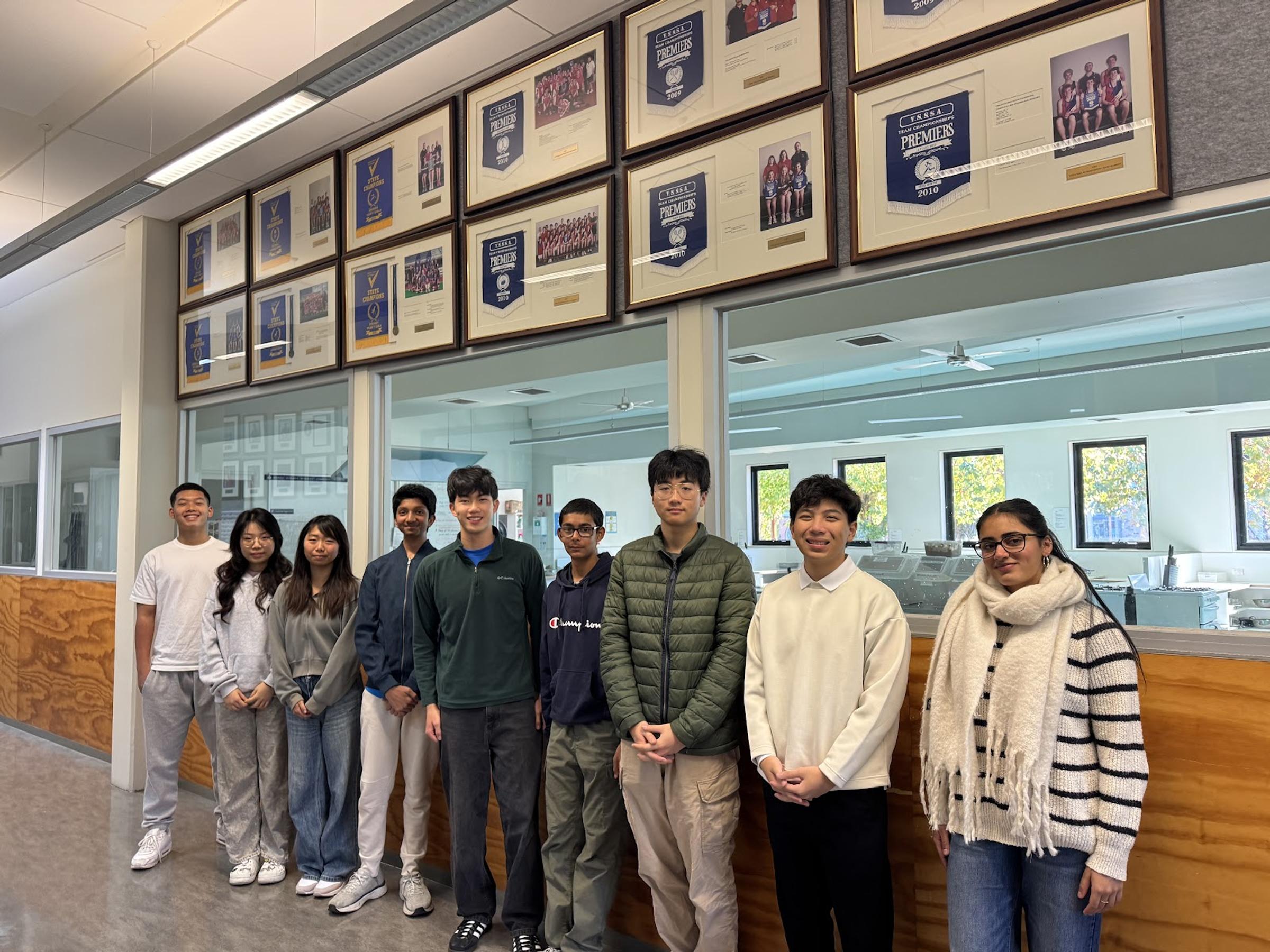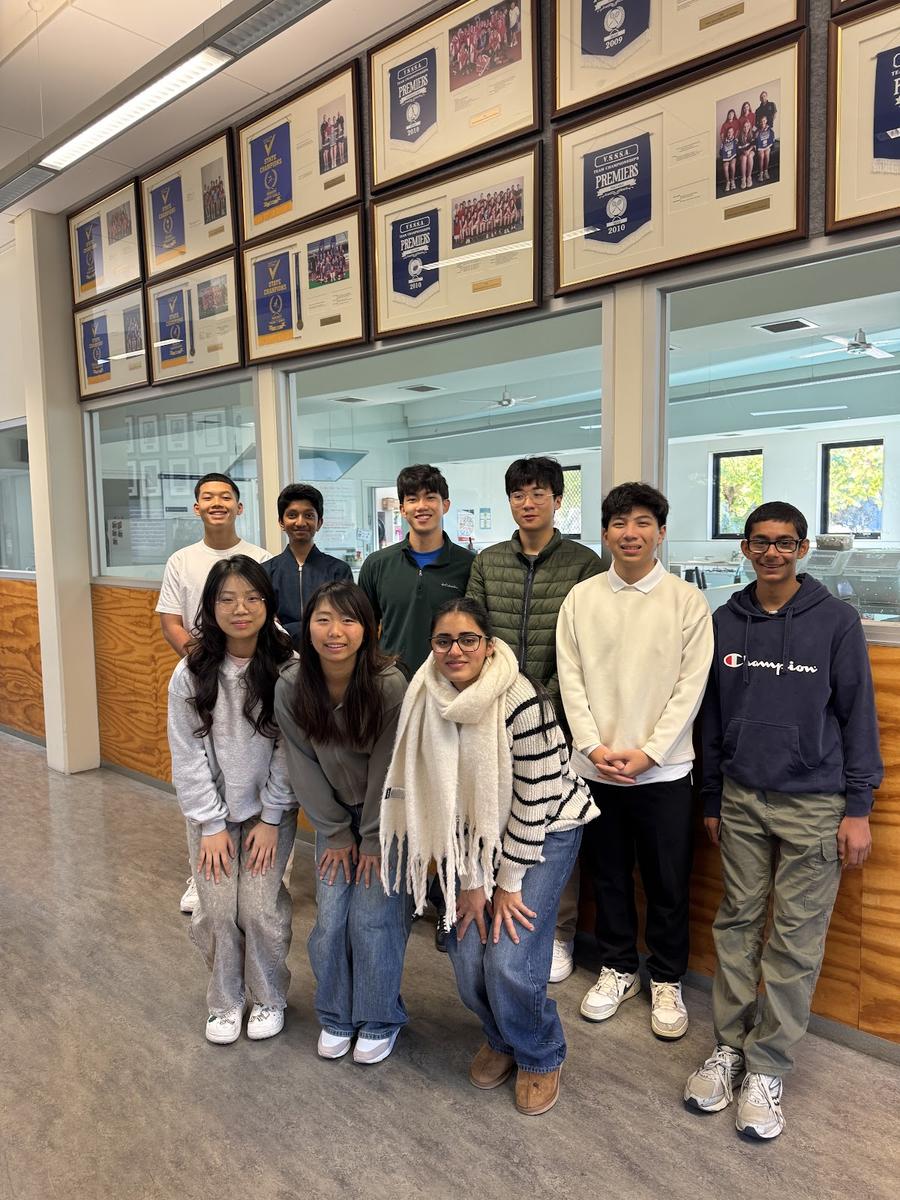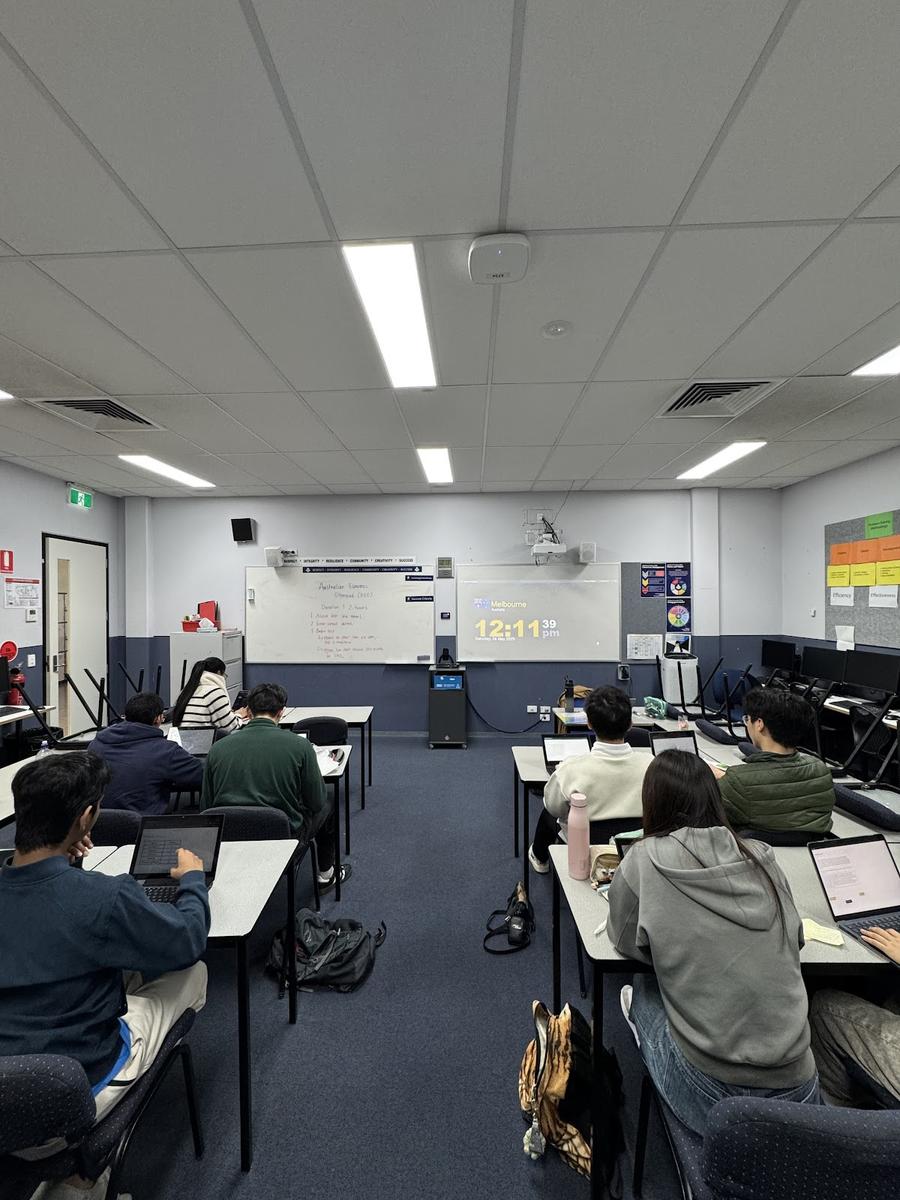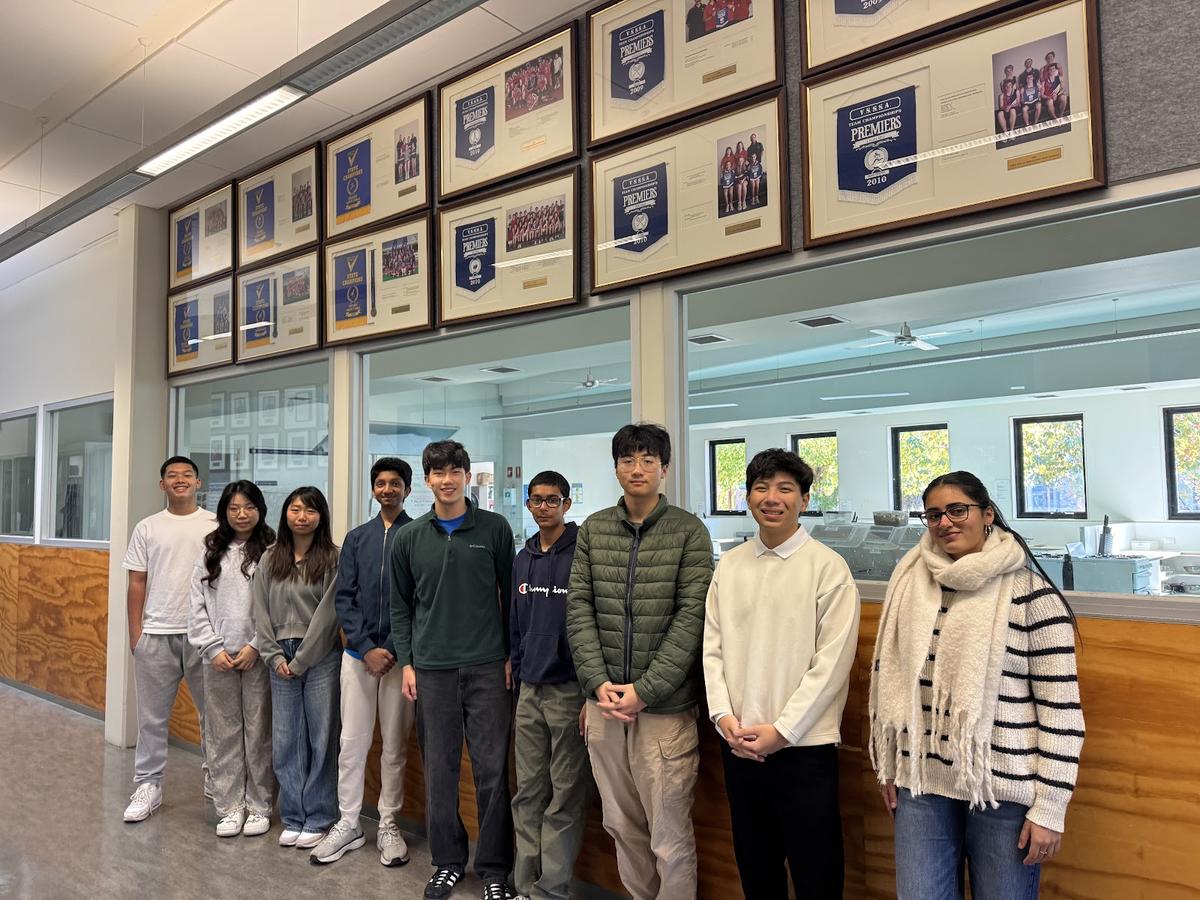HUMANITIES

AUSTRALIAN ECONOMICS OLYMPIAD (AEO) 2025
On Saturday 24 May, ten students from Years 10-12 sat the Australian Economics Olympiad (AEO). The competition assessed students' understanding of economics, with topics including microeconomics, macroeconomics, and historical facts. The test provided an insight into the current state of the world economies, presenting students with an opportunity to apply and test their critical thinking skills through four open-ended questions at the end of the test.
Suhaani Dua, a participant from Year 12 states:
My purpose for signing up for the olympiad was to test my general understanding of economics as a subject and my passion for it. I prepared for this to the best of my abilities by reading articles from the RBA website about our economic status, provided by my teacher, and personal research. The questions given in the olympiad helped me understand how to analyse and break down the issues the Australian economy is facing.
Shraavan Balaji, a participant from Year 10 states:
Participating in the AEO was a super insightful experience that broadened my understanding of how diverse and dynamic economics can actually be!! It exposed me to a wide range of question types and perspectives that I had neither encountered nor even considered before.
What I appreciated most was how it encouraged me to think critically and apply my knowledge in new ways. Even for those who aren’t fully invested in the subject, it’s still an excellent way to practice formulating responses for tricky questions in VCE. You can never really over prepare for something like this because it’s complex, and that’s what makes it so valuable. I found the worded questions at the very end especially thought-provoking, as they really tested not just content knowledge but also how well you could think on your feet. I think everyone should give this a go next time it comes around; I know I am!
Leo Yang, a participant from Year 12 states:
This was the first time McKinnon had hosted the AEO, and I thought Miss Zahra did a great job organising the schedule and the room, giving us the chance to extend our economics knowledge beyond the study design and the textbook. The competition began with a wide range of multiple choice questions - some based on textbook content, others drawn from readings about Nobel Prize–winning economists solving real-world economic problems. It concluded with four extended-response questions requiring real-time statistics and facts about the Australian economy.
Hania Zahra
Economics and Commerce Teacher



